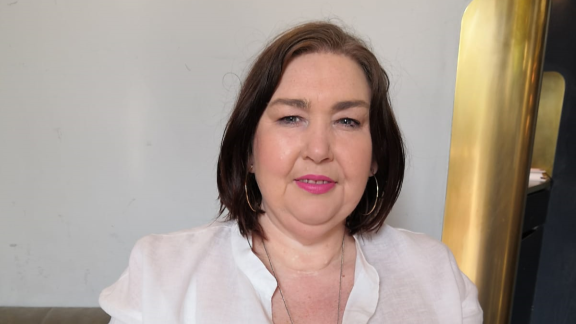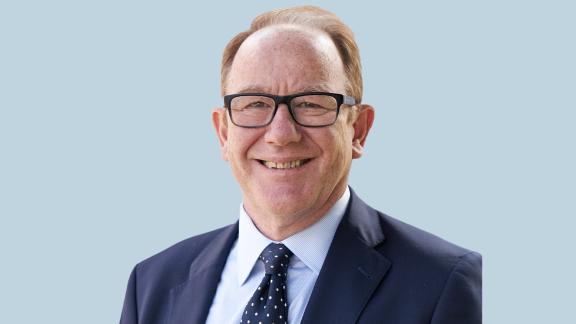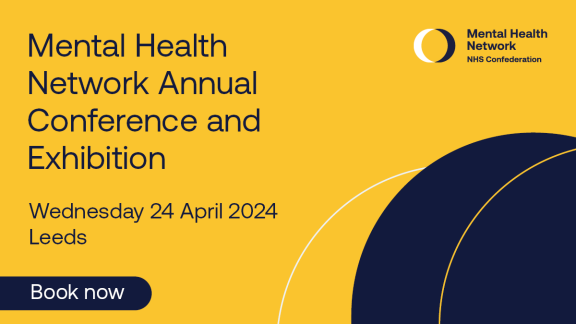Now is the time to get behind mental health crisis prevention

With many people who experience mental health crises being able to trace their struggles back to their childhood, Marsha McAdam emphasises the transformative impact of prioritising early intervention and person-centred care, informed by her own experiences of mental health services.
As someone who identifies with having a diagnosis of borderline personality disorder, I comprehend the challenge to obtain suitable and prompt treatment. We were reminded at a recent event on ending exclusion for individuals affected by this set of conditions, that some have tragically passed away while others now live with permanent health issues and generally worse outcomes.
Many of these outcomes can be attributed to the inappropriate care that patients either received or missed out on.
After experiencing repeated crises, being restrained by police in A&E, and ultimately taking an almost fatal overdose, I was finally provided with life-changing mentalisation-based therapy that saved my life. While the effects of this time in my life will remain with me always, I now champion causes as a patient advocate and expert from experience, including in my role as vice-chair of the NHS Confederation’s Mental Health Network.
Why personality disorder matters
My role as an advocate isn't about defining or debating diagnoses. While there are ten different types of personality disorders and ample research on them, I don't delve into their specifics. Instead, my expertise lies in sharing my personal journey after receiving such a diagnosis. What drives me is the absence of compassion and understanding I faced, prompting me to highlight the significance of this issue within and outside the mental health community.
When someone exhibits seemingly self-harming actions in healthcare settings … it can hinder them from getting the right medical attention
Regardless of one's background, it's essential to recognise that individuals with diagnoses of personality disorders might behave in ways that seem concerning to others, especially during distressing times or crises. Such behaviour can be misunderstood. When someone exhibits seemingly self-harming actions in healthcare settings, like A&E or primary care, it can hinder them from getting the right medical attention. This can sometimes even lead to their actions being perceived as criminal.
Many face a dual challenge: not only do they struggle to access suitable mental health support due to gaps in clinical services, but they also grapple with deteriorating physical health and disabilities. I've experienced this firsthand. When health issues go untreated or are treated inadequately, the consequences are long-lasting.
Person-centred care and prevention
The challenges highlighted earlier aren't exclusive to those diagnosed with personality disorder. This disorder often goes unnoticed, especially in children and young adults. Moreover, many individuals, including a significant number of adolescents, find their conditions worsening due to a lack of proper support, pushing them to the brink of crisis.
They need someone to see past their external behaviours and genuinely understand their internal emotions
What's crucial for these individuals, and what I personally needed, is a compassionate approach. They need someone to see past their external behaviours and genuinely understand their internal emotions. This understanding can help them move away from a crisis state and guide them towards the right treatment and support, setting them on a path to long-term recovery.
Dr Peter Fonagy, a colleague and expert in mentalisation-based therapy who leads the the Anna Freud mental health charity for children and families, aptly captured this sentiment. He emphasised that our failure to apply proven effective methods often results in vulnerable individuals being placed in restrictive, prison-like environments. This not only isolates them but also diverts resources that could be better spent on prevention and more impactful treatments.
It's worth noting that many who find themselves in such situations can trace their struggles back to their childhood. Imagine the transformative impact of prioritising early intervention. Instead of letting individuals bounce between services, facing escalating challenges, we could assure them, ‘You belong here,’ breaking the cycle of distress.
A call to action
There are shining examples of local initiatives making a monumental impact. Take, for instance, The Circle, a crisis prevention café in the London Borough of Ealing dedicated to supporting young individuals. Managed by the team from Hammersmith, Fulham, Ealing, and Hounslow Mind (HFEH Mind), this café assists with challenges that could escalate into full-blown crises.
Third-sector organisations … play a pivotal role in crisis management and in easing the strain on other system components
Furthermore, there's data indicating that such services alleviate the burden on the broader healthcare system. This includes reducing mental-health-related visits to A&E, collaborating with police and social services, or simply averting severe mental health issues. Yet, many of these initiatives, including The Circle, are spearheaded by third-sector entities. Alarmingly, The Circle faces uncertain funding prospects and might cease operations by March 2024.
Third-sector organisations like HFEH Mind play a pivotal role in crisis management and in easing the strain on other system components. It's imperative that the NHS offers them more robust support in their endeavours.
Undoubtedly, integrated care systems confront immense challenges. However, the gradual shift towards prevention must persist. Especially in the realm of mental health, such a focus promises substantial returns for both the overarching care system and society. We have the evidence. We're aware of the effective strategies. Now's the moment to channel resources into prevention. Otherwise, a decade from now, we might find ourselves lamenting the same unaddressed issues.
Marsha McAdam is a patient advocate and expert from experience, as well as vice-chair of the NHS Confederation’s Mental Health Network. Marsha is also a Churchill Fellow (2023) and a recipient of the President's Medal from the Royal College of Psychiatry (2023).



